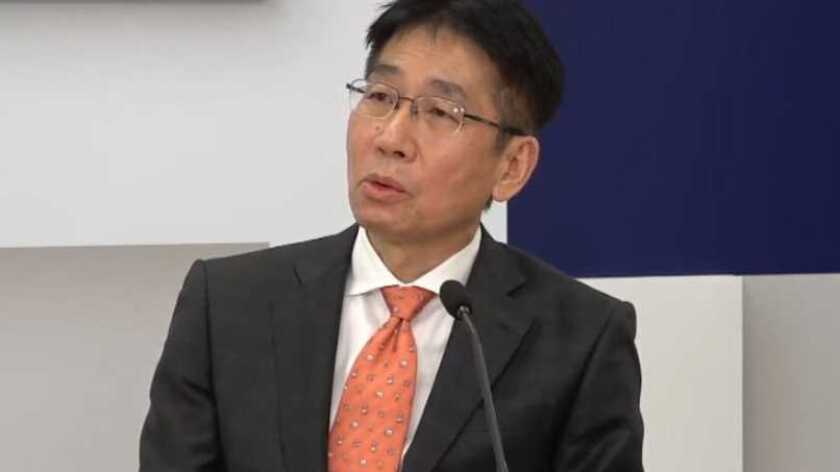The two plan to collaborate on open radio access networks (open RAN or O RAN) and photonic networks to improve the performance of today’s wireless and fibre services.
The companies will “take on the world”, said NEC’s CFO, Takayuki Morita (pictured), in a debate with NTT executive vice president and board member Naoki Shibutani. They were speaking as part of the NEC Visionary Week, an online conference, that took place just days after NEC announced plans to create a 5G centre of excellence in the UK.
Their big target is GAFA — the perceived alliance of Google, Apple, Facebook and Amazon that has come to dominate telecoms and online services. “It’s the GAFA effect in search and video services,” said Shibutani. “They are making inroads into data centres. We have to play a leading role in open networks.”
He foresaw a “digital twin society”, created by internet of things (IoT) sensors, but that “will be extremely challenging for telcos”, he warned, because of the traffic created. “We need to respond to a wide range of things that didn’t exist before. The internet won’t be able to meet the demand.”
NTT, Intel and Sony have created an alliance, the Innovative Optical and Wireless Network (IWON) global forum, which met first online in September 2020. Members now include companies such as Ciena, Ericsson, Microsoft and NEC.
“We can’t do everything ourselves,” said NEC’s Morita. “We need an open and transparent world.” As well as the partnership between NEC and NTT, he sees the IOWN involving carriers and suppliers around the world.”
NTT’s Shibutani said that IOWN means “we decided to change the world by becoming core companies”.
In the past standards emerged from the International Telecommunication Union (ITU), said Shibutani. “They decided everything, such as telephone numbers, country codes and routes.” Power has moved to the Internet Engineering Task Force (IETF) as a de facto standards body, he added, but the result is “people from English-speaking countries keep working on their own standards”.
He wants to use open architecture “to create a communications platform where innovation happens more easily”.
Morita said that NEC plans “lots of testing” of open RAN “over the next year or two”. He said: “We are going into the demonstration stage to see whether interoperability works.” He predicted an initial drop in performance, but said that will improve thanks to the vendor’s work with NTT.
Shibutani added: “The 5G revolution and the digital society that will lead to 6G have only just begun. We need to create an environment for technology innovation.”






